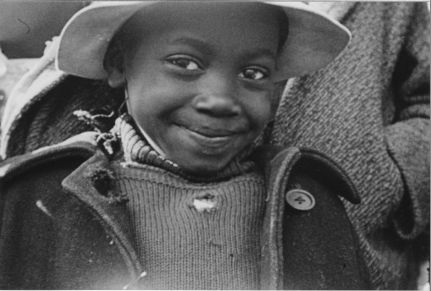

 |
|
| Movies of Local People: Kannapolis (H. Lee Waters, 1941) Courtesy David M. Rubenstein Rare Book & Manuscript Library, Duke University |
Film Love
at the High, part 3:
Selections from "Civil Rights on Film"
Thursday, March 14, 2019 | 7:00 pm
Hill Auditorium, High Museum of Art
$14.50 admission | free for High Members
On March 14, 2019, Film Love continues its retrospective at the High Museum
with selections taken from the 2009 series Civil Rights on Film, curated by Andy
Ditzler. These historic films are inspired responses to the challenge of
representing segregation and the struggle for black Civil Rights onscreen.
Produced in 1953 by the Georgia Department of Health as a training film for
midwives, All My Babies documents the extraordinary working life of
Mary Francis Hill Coley, an African American midwife from Albany, Georgia. In
the film, Coley assists two different families with their children’s births, and
the contrast between these two families is the window through which the film
subtly addresses inequality in the rural south during the Jim Crow era.
Punctuating the dramatizations of health procedures for women is a remarkable
fifteen-minute childbirth sequence. Originally restricted to health
professionals and private screenings, All My Babies was nevertheless
quickly recognized as both an aesthetic and social landmark in documentary film
– a portrait of compassion in a difficult time and place.
During the
Great Depression era, North Carolina photographer H. Lee Waters traveled from
town to town with his 16mm camera. He took images of local people on the street,
then projected them at the town movie theaters, allowing people to see
themselves on the big screen. Waters’s films are now an important historical
record of the southern locales where he shot. His film of Kannapolis, North
Carolina, is an absorbing and moving portrait of people in both the white and
African American neighborhoods of this segregated city. Like All My Babies,
it was selected for the prestigious National Film Registry at the Library of
Congress.
Showing us the daily life of an African-American transgender
woman, Nikolai Ursin’s 1965 UCLA student film Behind Every Good Man is
a rare pre-Stonewall document of black LGBT life. Like All My Babies, this
breezy, compassionate film walks a complex line between documentary and
dramatization in its representation of emerging identities and Civil Rights
movements.
Movies of Local People: Kannapolis (H. Lee
Waters, 1941) 16mm transferred to digital, 35 min
All My Babies
(George Stoney, 1952) 16mm, 55 min
Behind Every Good Man
(Nikolai Ursin, 1965) 16mm, 8 min
High Museum of Art
1280 Peachtree St NE
Atlanta, Georgia 30309
www.high.org
Selections from "Civil Rights on Film" is a Film Love event. The
Film Love series provides access to great but rarely-screened films, especially
important works unavailable on consumer video. Through public screenings and
events, Film Love preserves the communal viewing experience, provides space for
the discussion of film as art, explores diverse forms of projection and viewing,
and illuminates connections between the moving image and other art forms. Film
Love is curated by Andy Ditzler.